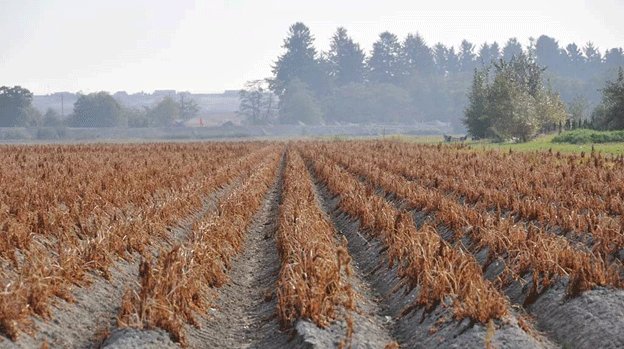R.D. Offutt Farms, one of the largest potato producers in the United States, has made the difficult decision for a second consecutive year to leave portions of their potato crops in Minnesota unharvested. The decision, attributed to a mix of weather-related quality issues and fluctuating market conditions, highlights the growing challenges that many farmers face. Yet, rather than let the excess crop go to waste, R.D. Offutt Farms has taken steps to make a positive impact by organizing community harvest events and donating surplus potatoes to food shelves through a partnership with Second Harvest Heartland, aiming to donate up to 1 million pounds of potatoes.
Why Are Potatoes Being Left in the Fields?
R.D. Offutt Farms’ unharvested crop underscores the effect of severe weather events on potato farming. Jennifer Maleitzke, Director of Communications for R.D. Offutt Company, explained that only the highest-quality potatoes were selected for harvest this season. Although the exact number of unharvested acres was not specified, the decision reflects an industry-wide trend where potato crops have faced stress due to erratic weather conditions in the Midwest. The climate challenges included both early-season wet conditions and late-season cool temperatures, which compromised the quality and shelf-life of harvested potatoes.
The USDA reported that unpredictable weather patterns in the upper Midwest impacted overall potato yield and quality, with some fields seeing quality drops of up to 20%. As a result, farmers like those at R.D. Offutt have had to make critical decisions on which crops are viable for harvest and which are better left to decompose in the fields.
The Market Challenge: Balancing Supply and Demand
This year, the potato market has also seen fluctuations that are creating pressures on the supply chain. In North America, Lamb Weston, one of the largest potato processors and a supplier to McDonald’s, has faced a supply-demand imbalance, leading to reduced operations. The imbalance even led to the closure of a processing plant in Washington State. R.D. Offutt Farms, despite rumors, confirmed it continues its partnership with Lamb Weston, supporting processed potato products used in fast-food chains. However, the broader economic landscape and shifts in consumer habits—like smaller portion preferences in meal deals—have affected the demand for processed potatoes, putting additional pressure on producers.
Gary Shields from the Northland Potato Growers Association in Minnesota offers a more optimistic view, however, noting that processed potato demand remains strong overall. In 2023, U.S. potato acreage increased slightly, and the yield per acre has remained favorable for processors despite weather setbacks. This growth suggests that the industry remains resilient, though it will need to adapt to both climate and market-driven challenges.
Community Support through Potato Donation
In response to surplus production and quality issues, R.D. Offutt Farms has embraced food donation efforts. Through a partnership with Second Harvest Heartland, they plan to donate up to 1 million pounds of potatoes, reinforcing their commitment to support local communities and minimize food waste. Second Harvest Heartland, operating across Minnesota and Wisconsin, will redistribute these potatoes to food shelves and community kitchens, addressing food insecurity while simultaneously reducing the burden on the agricultural waste cycle.
Additionally, R.D. Offutt Farms has organized “community digs,” inviting local residents to harvest potatoes directly from the fields. This initiative not only provides free food for families but also increases community engagement and appreciation for local agriculture.
The experience of R.D. Offutt Farms underscores the complex challenges that potato farmers face as climate and market forces intersect. While quality issues forced portions of the crop to be left unharvested, the farm’s innovative approach to donating and community engagement highlights a constructive response to surplus and supply chain imbalances. For farmers and industry stakeholders, adopting adaptive measures like these can help alleviate the impacts of volatile conditions and foster resilience within the potato industry.







